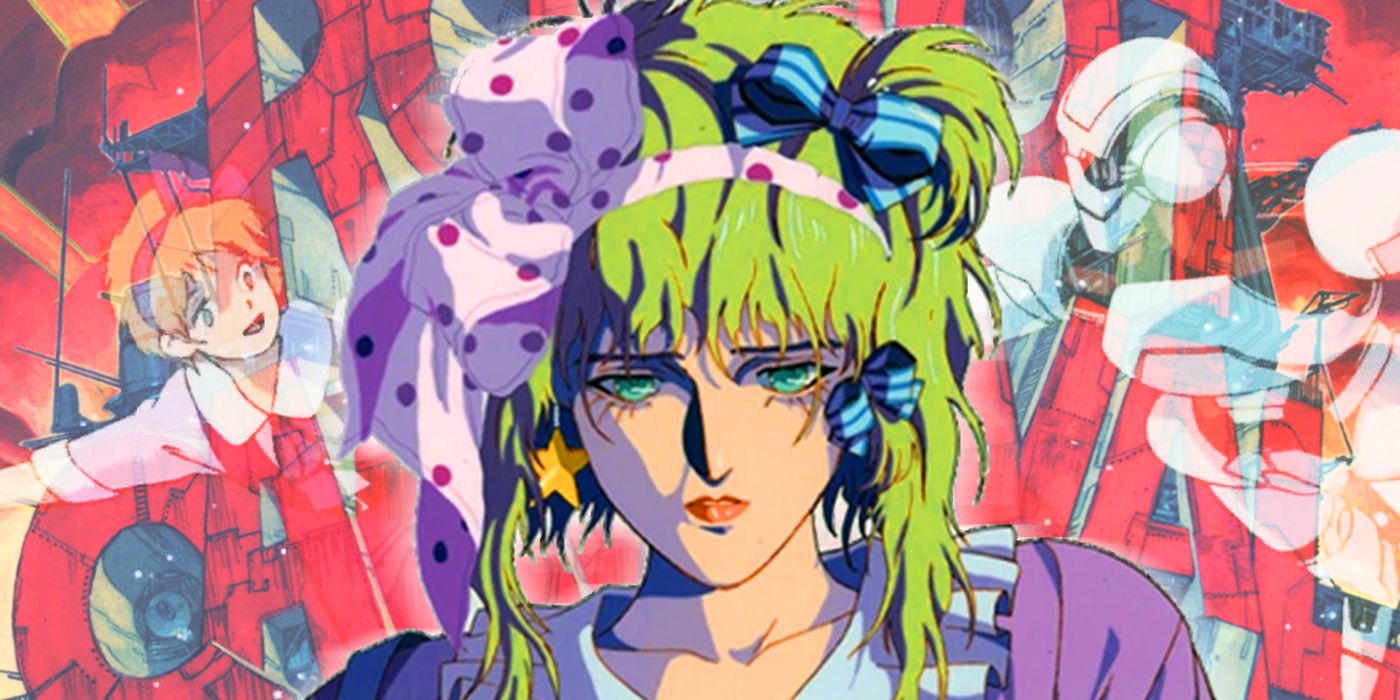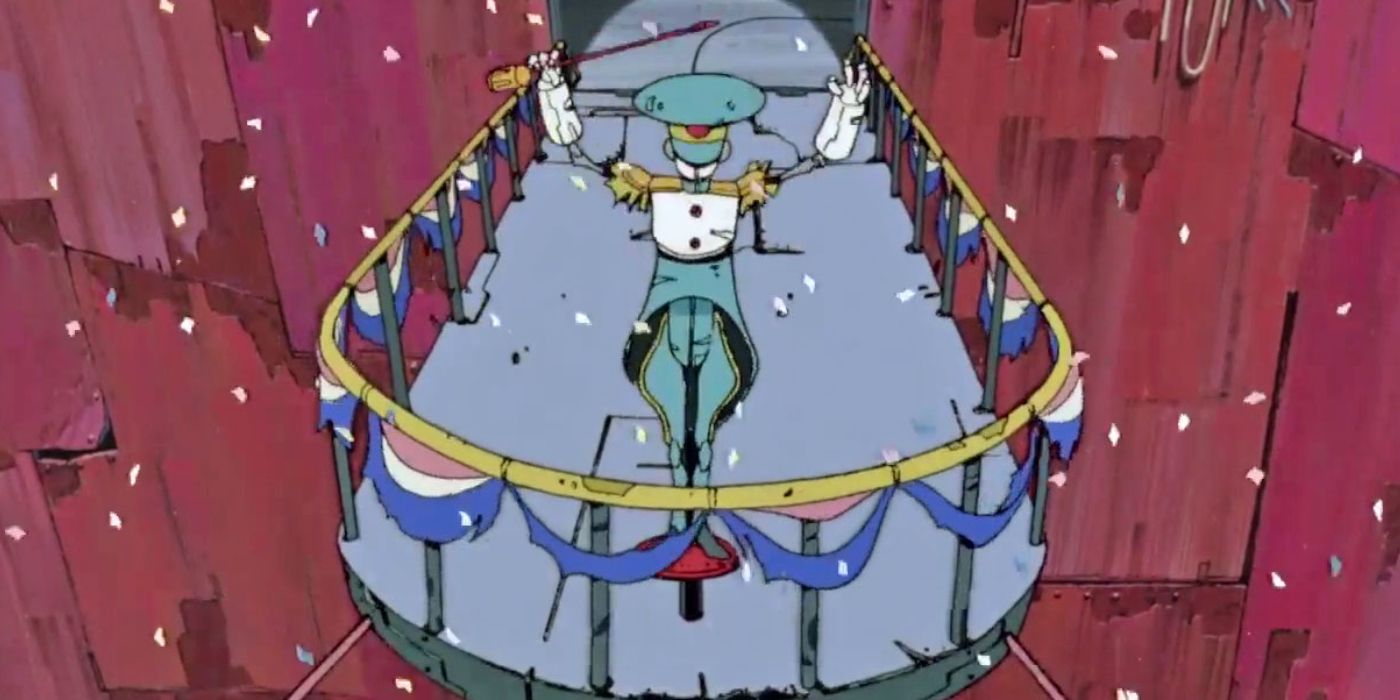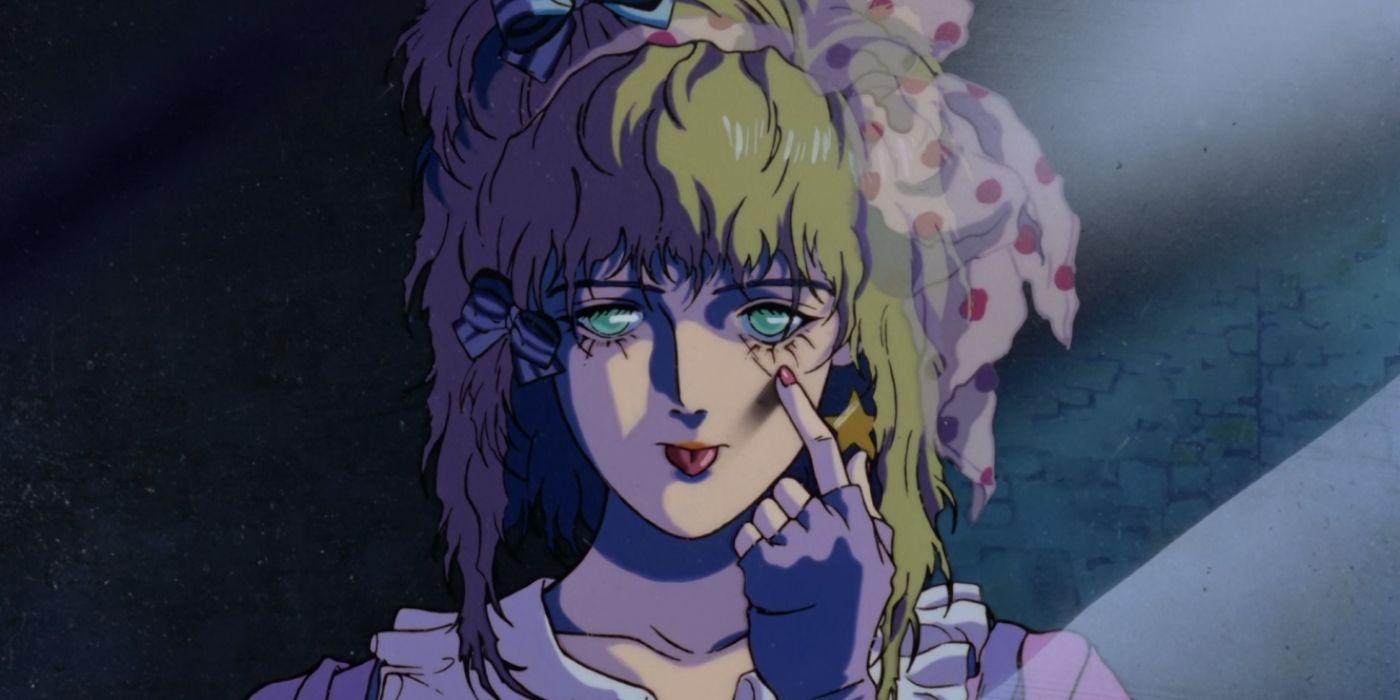1987's Robot Carnival is an anime masterpiece that never gets the attention or adoration it deserves. The film has a fascinating background, production history and is a unique cinematic experience. Thankfully, Discotek Media's recently announced Blu-ray release of the film and its upcoming 4K version means more people than ever will get the chance to experience and talk about this often overlooked anime classic.
Robot Carnival is an anthology film that featured short films by many up-and-coming directors and animators. The only rule was that each of these shorts must feature robots, and this very open theme is part of Robot Carnival's brilliance. Looking through the list of directors for Robot Carnival is like reading a who's who of legendary anime talent. The movie features Hiroyuki Kitazume, the animation director and character designer for Mobile Suit Gundam: Char's Counterattack. The director of Blood: The Last Vampire, Hiroyuki Kitakubo, also contributes a short. Most famously, Akira creator Katsuhiro Otomo directed the shorts that bookend the film.
This is all joined together by a soundtrack composed and arranged by Joe Hisaishi, Hayao Miyazaki's go-to composer since 1984 who has also soundtracked films like My Neighbor Totoro, Kiki's Delivery Service and Spirited Away. Robot Carnival's soundtrack builds on the robot theme with a series of memorable all-electronic pieces that make full use of many classic 1980s synthesizers and other electronic instruments, adding to the film's experimental and surreal feeling.
Robot Carnival's strength is in its variety as each short looks and feels very different. Star Light Angel, the short directed by Hiroyuki Kitazume, is inspired by the music video for A-Ha's "Take on Me." It follows a girl who goes to a robot-themed amusement park with her friend, only to learn that friend is now dating her boyfriend. Utterly distraught, the girl goes on a virtual reality ride only to find her sadness causes the attraction to create a giant laser-breathing mecha. One of the park's mascots must save the girl from both the monster and her underlying dark thoughts.
Katsuhiro Otomo's shorts act as the film's bookends, and it is a brilliant piece of animated satire. It follows a young boy in a small desert community who finds a poster for a robot carnival and tries to flee in fear. However, the robots arrive before he can get too far. This carnival used to be grand, but it has slowly become rusted and damaged after years of wandering the desert, turning the once-beautiful sight into a destructive storm of metal and color that destroys anything it comes into contact with.
The most famous and most memorable short of the collection is Yasuomi Umetsu's Presence, which tells the story of a man who builds a robot companion to help him cope with intense loneliness. However, when the robot develops a personality of her own, the man has to face what he has created and the confused feelings within him. This short is stunningly detailed and visually striking, only helped by the fact that Robot Carnival is animated at a full 24 frames per second, with each frame being hand-drawn without computer help -- a stunning technical achievement.
Robot Carnival got an American release in 1991 thanks to Streamline Pictures. However, this version is notoriously terrible, rearranging most of the film and cutting out several minutes of the ending. Even worse, several shorts were dubbed in the worst way possible. The short Strange Tales of Meiji Machine Culture: Westerner's Invasion was given a terrible B-movie dub that made the whole thing seem like a parody. Presence got butchered with extra dialogue that sounds like it was stolen from an edgy teenager's first drama school project. Thankfully, Streamline's VHS and Laserdisc releases quickly became rare, saving people from this poor version. In the mid-2010s, Discotek Media released uncut DVD and Blu-ray versions of the film, allowing Americans to enjoy it in all its glory.
An underappreciated anime masterpiece that every anime fan should watch at least once, Robot Carnival perfectly illustrates why the 1980s was considered the golden age of anime. It also shows how creative directors and animators can take a concept in so many unique directions when given the freedom to do so. Hopefully, Discotek Media's upcoming 4K release will allow people to appreciate how varied, detailed, and beautiful Robot Carnival is.



